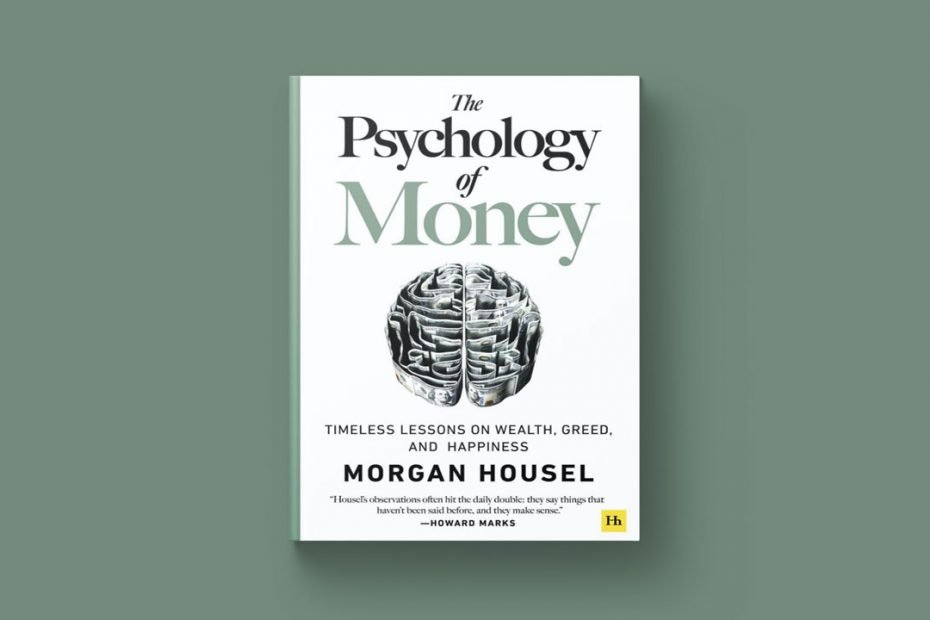Tips
Top 10 Lessons to Learn from The Psychology of Money Book That Can Change The Way You Think
Lessons that can get you far in life.
Published
3 years agoon
By
Mario
The personal finance book with the greatest rating and best sales over the past ten years is The Psychology of Money. You’ll be shocked to learn that there isn’t even one piece of tactical investing advice.
No methodology for stock valuation suggested portfolio balances or tax efficiency is necessary for you to understand. Instead, Morgan concentrates on the soft talents that go into creating wealth, as the book’s title suggests.
Here are the top ten takeaways from the book that will greatly enhance your capacity to accumulate wealth.
Top 10 Lessons from The Psychology of Money
1. Nobody is Crazy
The first lesson is that nobody is crazy, and everyone manages their money differently. This is due to their upbringing and the way they were exposed to money. Everyone has a unique perspective on money, which is just the result of your environment and personality.
For instance, if you were a teen between 1940 and 1945, depending on whether you were a Jew in Germany or an American, your perspective on money would be quite different.
While the stock market in America doubled during that time, you, as a Jew in Germany, were living in fear for your life. You start to think about money very differently as a result of this.
Recognize this and be aware that what can seem absolutely absurd to you to do with your earnings may be completely natural to me.
2. Luck & Risk

Your success is heavily reliant on chance and risk. Being humble and avoiding becoming arrogant can both be facilitated by understanding that you may be lucky to have accomplished what you have.
3. Never Enough

Some extremely affluent people who already possess a tremendous amount of fortune continue to gamble away what they have in an effort to acquire even more. Recognize when enough is enough.
Housel does not imply that reaching for more is foolish, but you should be conscious that you still risk losing everything. Know what you have, cherish it, and be conscious of the dangers you are taking. Change your approach, perhaps, and invest less money in hazardous stocks.
4. Confounding Compounding
The eighth wonder of the world, according to Einstein, is the result of compound interest. More than 90% of Warren Buffet’s wealth was amassed after the age of 50. Your assets will increase more rapidly the longer you give compounding time to work its magic.
Start with 1, – and assume that your net worth grows every year. After ten years, your net worth will be 1024, of which half was generated in the previous year. It can be challenging to comprehend, but once you do, you’ll see that time will work wonders for your finances when they are compounding.
5. Getting Wealthy vs. Staying Wealthy

Sometimes you just have to take risks to become affluent, and sometimes you have to avoid risks to remain wealthy.
Know when you’ve had enough, just as it was mentioned in the never-enough lesson. If you later decide to buy more, exercise caution and don’t put everything on the line.
6. Wealth is Something You Can’t See
You really only understand one thing from the individuals you see wearing designer clothing or having a Rolex, a Louis Vuitton bag, or other pricey accessories. Due to the significant amount of money, they spent on such items, their net worth has fallen. What’s left is a mystery to you.
They may even be in debt or have no money. Avoid attempting to appear wealthy while being underprivileged.
7. Tails, You Win
In this chapter, Housel makes reference to the fact that most outcomes are frequently explained by the events that have a one in 100 chance of occurring in the tails of a normal distribution.
Similar to Pareto’s Principle, which holds that frequently 20% of occurrences result in 80% of results.
For instance, if you invest in 100 penny stocks, it’s possible that one of them may increase by 40% yearly for more than ten years while the rest stagnate or even fail.
It makes no difference that 99 out of 100 stocks are a failure since the one stock that succeeds will make up for it. It doesn’t matter if you frequently fail in trading stocks or other types of generating income business as long as you have these successful tail events to compensate for it.
8. Freedom

The biggest return on investment is time. The flexibility to choose what you can do, when you want, with whoever you want, was cited as the factor that made senior people in a large survey the happiest.
Try to make money a means to an end rather than a goal of its own if you want to be satisfied and utilize it to be able to devote your time how you prefer.
9. Room for Error
The most crucial component of every strategy, according to Housel several times in this book, is anticipating that things won’t go as planned. Plan with some space for error. The market and the economy are erratic and unstable. When making plans, take this into account.
10. You’ll Change
The things that people currently consider significant may be irrelevant in ten years. This makes it more difficult to develop long-term strategies because aspirations and goals evolve. Remember this, and don’t be afraid to alter or adapt your approach slightly.
Final Note
The book’s explicit connection between psychology and personal finance is its most important feature. Saving, choosing investments, and making decisions are all recognized as essential elements of personal finance, but the psychological aspect is rarely examined, and that is what this book is about.
You will manage your money better than 99% of people if you read this and another book on the practical side of personal finance like I Will Teach You To Be Rich.
You may like

Best Problem-Solving Strategies In Business

How to Start Affiliate Marketing Through Amazon

How to Plan A Wedding On A Budget

10 Reasons Why Budgeting Is Important


